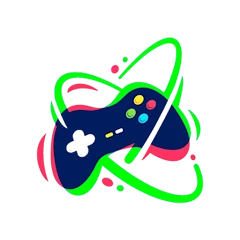How to Get Started with GAME MOD?
- 1. **Research the Game**: Understand the game's mechanics, structure, and community. Check if the game supports modding and what tools are recommended by the community.
- 2. **Choose Modding Tools**: Depending on the game, select appropriate modding tools. Popular choices include:
- - **Modding SDKs**: These are often provided by developers (e.g. Bethesda’s Creation Kit for Skyrim).
- - **Third-party Tools**: Programs like Unity or Unreal Engine for 3D games, or software like GIMP and Blender for art and asset creation.
- 3. **Set Up Your Environment**: Install necessary software and create a dedicated folder for your mods. Ensure you have backups of original files before modifying.
- 4. **Learn the Basics**: Familiarize yourself with the modding tools. Utilize tutorials, forums, and documentation specific to the game or tool.
- 5. **Start Small**: Begin with simple modifications, such as altering textures, creating new items, or tweaking game parameters.
- 6. **Test Your Mod**: Regularly test your modifications in the game to ensure compatibility and stability.
- 7. **Join the Community**: Engage with other modders through forums, Discord channels, or social media. This can provide support and inspiration.
- 8. **Share Your Mods**: Once satisfied with your creation, share it through platforms like Nexus Mods or the Steam Workshop, ensuring you follow the game's modding guidelines.
- 9. **Seek Feedback and Iterate**: Gather feedback from users to improve your mod and fix any lingering bugs.
- 10. **Stay Updated**: Keep up with game updates and modding tool developments to maintain compatibility and enhance your skills.
10 Pro Tips for GAME MOD Users
- 1. Familiarize Yourself with the Documentation: Always read the official documentation for the mod tools you’re using. It contains valuable information on features and functionalities.
- 2. Start Small: Begin with simple modifications to understand the tool's capabilities before tackling complex projects.
- 3. Backup Original Files: Always create backups of original game files before making any changes to prevent loss of data.
- 4. Test Frequently: Regularly test your modifications to catch bugs early and ensure compatibility with the game.
- 5. Follow the Community: Join forums and communities related to the game and modding tools for tips, tricks, and support from experienced users.
- 6. Keep It Organized: Maintain an organized folder structure for your mods to make management easier and reduce confusion.
- 7. Explore Tutorials: Seek out video or written tutorials that guide you through specific tools or techniques for a more hands-on learning experience.
- 8. Use Version Control: Implement version control for your mod files to easily track changes and revert to previous versions if necessary.
- 9. Experiment Creatively: Don’t be afraid to experiment with different techniques and ideas to discover unique modding possibilities.
- 10. Stay Updated: Keep your mod tools and game up to date to leverage new features and ensure compatibility with the latest game patches.
The Best Hidden Features in GAME MOD
- **Customization Options**: Many mod tools allow for extensive character customization, including appearances, abilities, and gear.
- **Debugging Tools**: Some mod tools come with built-in debugging options that help developers or modders identify and fix issues more easily.
- **Scripting Capabilities**: Advanced mod tools enable users to write scripts that can alter game mechanics, create new quests, or modify existing ones.
- **Asset Importing**: Allows users to import custom models, textures, and sounds into the game, enhancing visual and audio diversity.
- **Real-time Editing**: Some tools permit real-time changes to the game environment, enabling instant feedback and adjustments during gameplay.
- **Save File Editors**: These tools let players modify their save files for various purposes, such as adjusting player stats or item inventories.
- **Map Editors**: Users can create new levels or edit existing maps, providing opportunities for unique gameplay experiences.
- **Cheat Code Integration**: Many modding tools include features for activating or creating cheat codes that can alter game dynamics dramatically.
- **Community Sharing Features**: Some mod tools allow for easy sharing of mods within a community, fostering collaboration and feedback among creators.
- **Compatibility Modes**: Certain tools offer compatibility modes for older games, making it easier to apply modern modding techniques to classic titles.


1.Rate
2.Comment
3.Name
4.Email